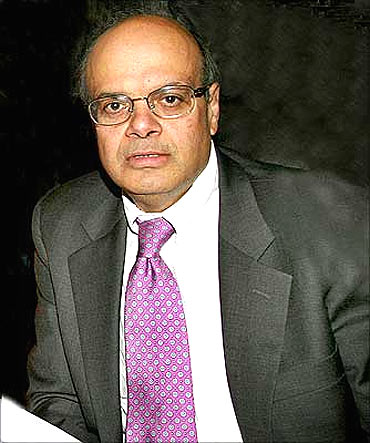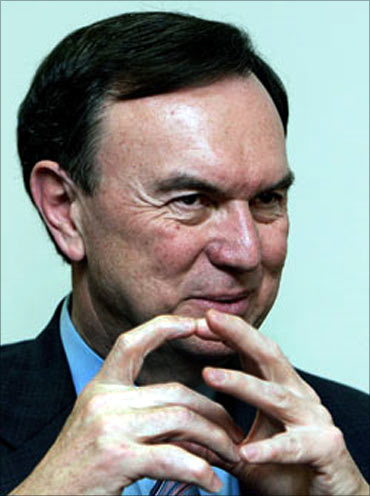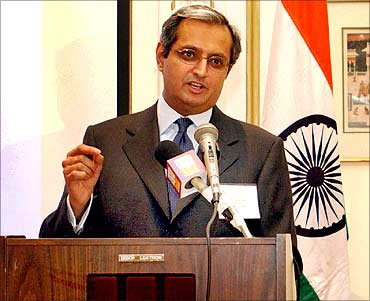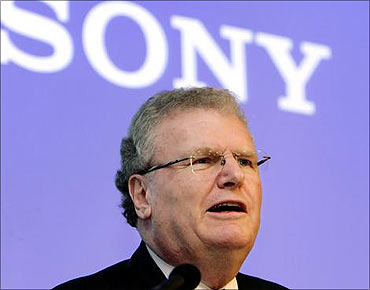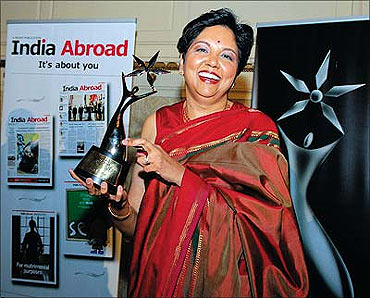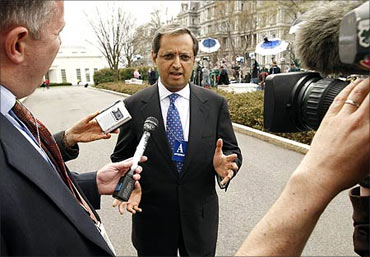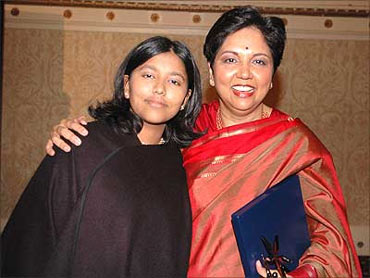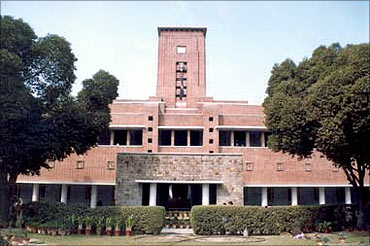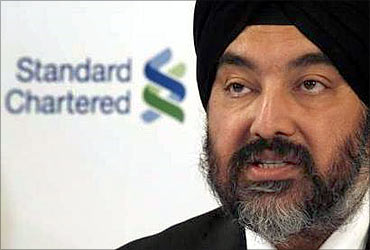Indians as global CEOs: Is it a real triumph?
Last updated on: September 3, 2010 19:32 IST
The flutter of interest and comment over Anshu Jain's candidacy for the top job at Deutsche Bank highlighted just how much India Inc loves to applaud every time any businessman or executive of Indian origin makes it to the top in the developed world.
The fortunes of Lakshmi Mittal, baron of the world's largest steel empire, Arun Sarin, who headed Vodafone from 2003 to 2008, Citigroup's Vikram Pandit and PepsiCo's Indra Nooyi, to name a prominent few, are closely covered by the Indian media and celebrated on muscular patriotic websites such as iloveindia.com.
Click
NEXT to read on . . .
Indians as global CEOs: Is it a real triumph?
Last updated on: September 3, 2010 19:32 IST
Last year, Warren Buffet's praise of Ajit Jain at Berkshire Hathaway found front page mention and triggered considerable speculation about his possible succession to the Oracle of Omaha.
For the most part, this is a harmless, even touching, past-time. In the midst of the rack and ruin of our urban environments and the very public embarrassment in the run up to the Commonwealth Games, such warm, fuzzy nationalism allows us to wallow in reflected pride and in the notion that, despite the odds, Indians can succeed in the tough, competitive world of global business where it is suspected that prejudices override objectivity. Is this vicarious self-esteem justified?
Click NEXT to read on . . .
Indians as global CEOs: Is it a real triumph?
Last updated on: September 3, 2010 19:32 IST
If you run an eye down the top 100 global corporations in the latest Fortune list, the national origin, if not the official citizenship, of the CEO mostly mimics the provenance of the corporation.
This is certainly true of the 20 largest companies. Wal-Mart, the world's largest firm, for instance, is headed by an American, Michael Duke, and Chinese companies Sinopec and State Grid (the world's seventh and eighth largest, respectively) have Chinese nationals as CEOs.
Click NEXT to read on . . .
Indians as global CEOs: Is it a real triumph?
Last updated on: September 3, 2010 19:32 IST
But it is a person of Indian origin - Vikram Pandit - who breaks this trend as CEO of Citigroup, the 33rd-largest listed company and the world's largest bank (global corporation number four British Petroleum's recently appointed American head Robert Dudley can be discounted since that was largely a political appointment following the
Deepwater Horizon disaster).
Click
NEXT to read on . . .
Indians as global CEOs: Is it a real triumph?
Last updated on: September 3, 2010 19:32 IST
For the next trend-breaker, you have to come to number 69 where Japan's Sony Corporation is headed by Howard Stringer, an American of Welsh origin - an event that attracted considerable media comment when Stringer was appointed in 2005.
Click
NEXT to read on . . .
Indians as global CEOs: Is it a real triumph?
Last updated on: September 3, 2010 19:32 IST
To find the next CEO of Indian origin in an overseas corporation, you have to come down to number 171, PepsiCo, headed by the popular and iconic Indra Nooyi. But this is about as far as parochial pride can take us.
That's because most Indian-origin corporate chiefs may have been born and educated in India up to a point, but it is in the first world that they have honed their managerial and business skills and it is from these environments that they draw their expertise.
Click NEXT to read on . . .
Indians as global CEOs: Is it a real triumph?
Last updated on: September 3, 2010 19:32 IST
In Pandit's case, this is strikingly so. He came to the US at age 16 and his higher education from his Bachelor's degree to doctorate was from Columbia State University.
He cut his teeth in high finance first, in Morgan Stanley in the early eighties, during the demand boom for quants, and later with Credit Suisse. Despite facing what New York magazine described as "subtle cultural biases", Pandit's rise to prominence in the world of global finance was an entirely American experience.
Click NEXT to read on . . .
Indians as global CEOs: Is it a real triumph?
Last updated on: September 3, 2010 19:32 IST
Indra Nooyi is a little more "Indian" in the sense that her higher education was from Indian institutions - a Bachelor's degree from Madras Christian College and a Master's from IIM, Calcutta. She also briefly worked in the Indian corporate world, though for overseas corporations such as Johnson & Johnson.
Since 1978, though, her experience of the business world is entirely global, first via a Master's degree from Yale and later through positions in Boston Consulting Group, Motorola and Asea Brown Boveri (it is easy to see why she was thought to be in the race to succeed Ratan Tata).
Click NEXT to read on . . .
Indians as global CEOs: Is it a real triumph?
Last updated on: September 3, 2010 19:32 IST
Similarly, Anshu Jain is a Shri Ram College alumnus but emigrated to the US at the age of 20, took a Master's degree from the University of Massachusetts and worked in then US stalwarts Kidder Peabody and Merrill Lynch before making a career in Deutsche Bank, where he now overseas its profitable investment banking business.
Berkshire Hathaway's Ajit Jain worked for IBM in India before it exited during George Fernandes' anti-multinational rampage and then developed a career in McKinsey before moving to Berkshire.
Click
NEXT to read on . . .
Indians as global CEOs: Is it a real triumph?
Last updated on: September 3, 2010 19:32 IST
Although it is okay to celebrate these successes, the real source of pride will be when Indians who have worked through the Indian business system come to head global corporations.
That will be a signal that India has truly integrated in the global business milieu. Some are already half-way there by heading up Asia-Pacific arms of multinationals (such as Stanchart's Jaspal Bindra).
But if - purely as examples - the shortlist of possible worldwide chiefs for Ford and Microsoft were to include, say, Tata Motors' Telang or Infosys' Gopalakrishnan, Indians can truly claim a triumph of their own.
Source:


